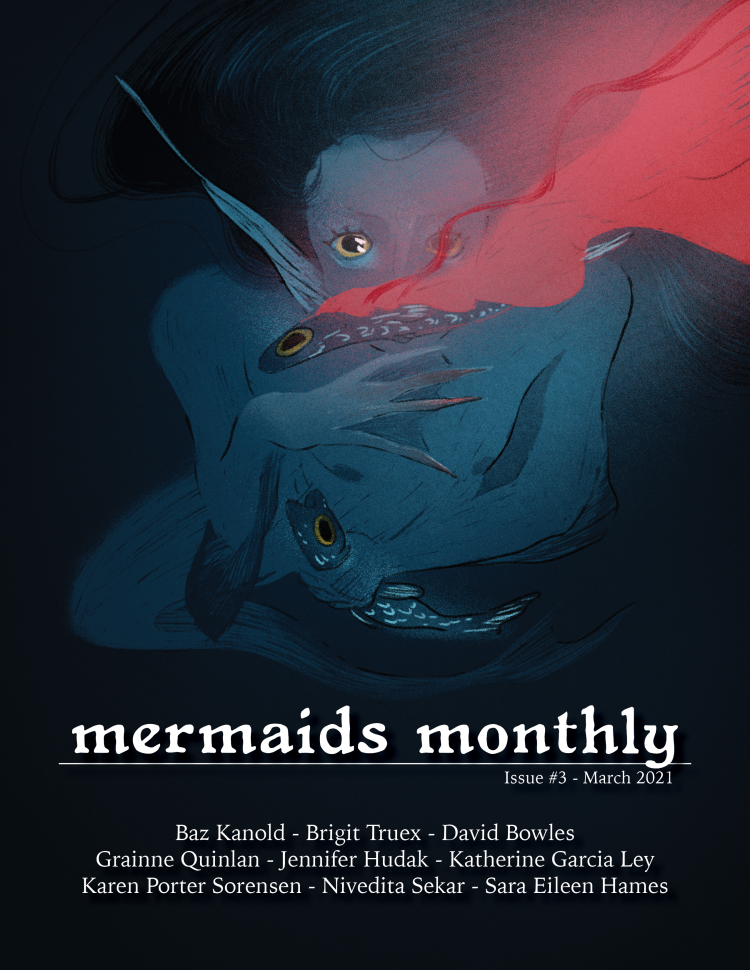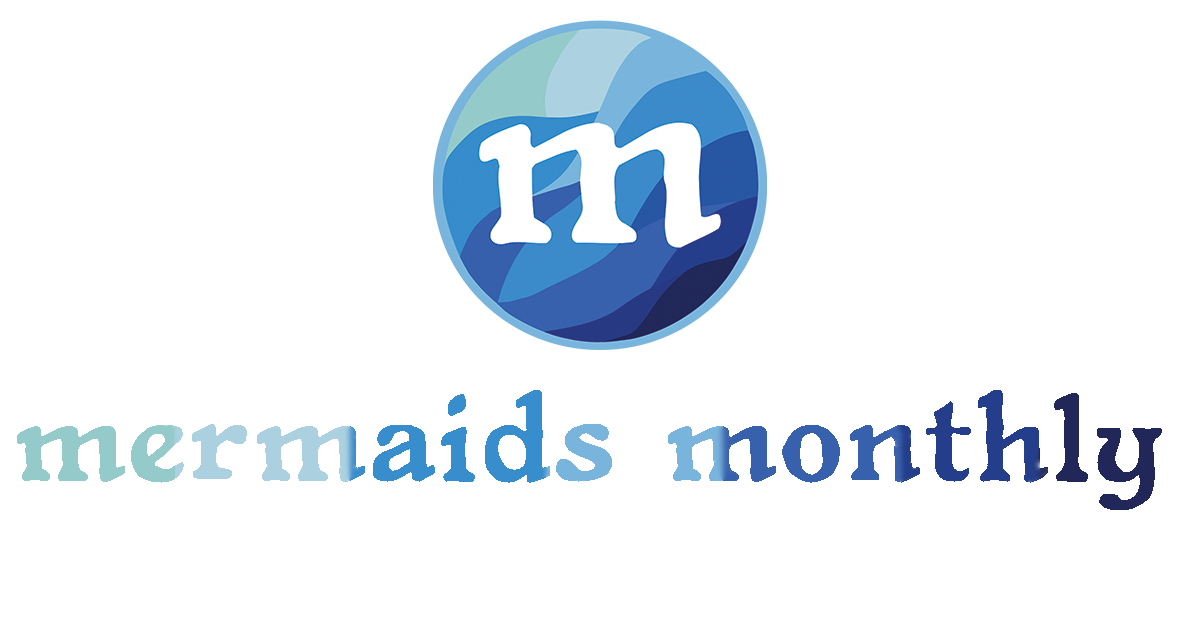What We’re Doing Differently, and Why
by Julia Rios
I’ve worked for several online magazines, and in my experience, every one of them has operated a bit differently to the others. Some publish a little bit of content for free online on a weekly basis, while selling monthly ebook subscriptions. Others publish at different rates, freely and behind paywalls.
We’re deliberately not spacing out our content to have a steady stream of it. Instead, we’re giving it all to our subscribers just a little earlier than we plan to give it to the general public, and once an issue is free, it’s entirely free. We give everyone access to all the versions: web, ebook, and PDF.
Why? Because I think of these issues as units, and I want anyone who finds one to be able to enjoy the whole unit at once in whatever format makes them most comfortable.
Mermaids Monthly was conceived as one year-long project, and at the end of the year, my goal is for the entirely of it to be available for anyone who wants to read all of it.
We’re also deeply committed to paying anyone who works with us. Regardless of whether we’re talking about contributors or staff, we’re adamant that people who work with or for us should receive monetary compensation. This is not true of every place I have worked, and it’s certainly not true of the literary journal world as a whole. Because of this, we have a very small staff, and we’re probably going to keep it that way.
And content? When I first thought of doing this, I imagined stories and poems, but once I brought the idea up to Meg, it started to grow. What about art? Comics? Essays? Why not all of them? We are celebrating merfolk here, and the ways that creative people explore merfolk are many. We’re excited to showcase several of them! I also wanted to encourage creative collaboration and play, which is why we have our Each to Each series of collaborations.
Mermaids Monthly is also a hybrid of solicited content and content we receive through open submissions. Our open calls are definitely not just tokens. We have already published works by 13 different submitters from our open submissions just in these first 3 issues, and we plan to publish many more alongside the solicited authors we’ve planned to publish from the start. I’ll be writing more thorough breakdowns of our first open submissions period in a later issue for anyone who is curious.
Some of our issues will have themes (like February’s Space Needs Mers theme), and some won’t (like this issue, which has different threads of connections between pieces, but no overarching theme – aside from the obvious mer-theme, of course). The thing we most want is a great variety of types of pieces and of ways to interpret merfolk. For this reason, we’re also always committed to finding different perspectives, marginalized voices, and things both old and new. Heck yes, we’re reprinting things! Tons of stories and poems and art pieces exist that any given reader may or may not have ever seen, and we are excited to share some of the ones we found while combing the sea floor.
Most of all, I envisioned this project as fun, an experiment, and a chance to engage in creative play. We’re not trying to make a huge profit here. Just trying to give everyone something fun to look forward to in the year 2021, year two of our global pandemic, and a time when I think all of us could use a break. I include our staff in that. I want to pay them, and I also want to know that they aren’t feeling burnt out and overwhelmed. Burnout is extremely real, especially this year, so we’re operating with a much less rigid idea of deadlines than we might if we were a big corporate concern. This means, among other things, we don’t really announce far in advance what our exact publication dates will be. We aim for once a month, and we aim to give our subscribers a little time to swim around in the mermaid lagoon before we invite everyone else in, but other than that… it’s flexible.
If you want to support us, we do have subscription options, including a Patreon, which offers some behind the scenes glimpses as well as the chance to personally sponsor some of our content. All your support goes directly into production and acquiring more awesome things to share!
Julia Rios is a queer, Latinx writer, editor, podcaster, and narrator whose fiction, non-fiction, and poetry have appeared in Latin American Literature Today, Lightspeed, and Goblin Fruit, among other places. Their editing work has won multiple awards including the Hugo Award. Julia is a co-host of This is Why We’re Like This, a podcast about the movies we watch in childhood that shape our lives, for better or for worse. They’re also one of several cohosts for The Skiffy and Fanty Show, a general SF discussion podcast, and they’ve narrated stories for Escape Pod, Podcastle, Pseudopod, and Cast of Wonders. They’re @omgjulia on Twitter.

Read the Rest of the February Issue
- Mermaid by Nivedita Sekar
- Til Human Voices Wake Us by Jennifer Hudak
- Lament of the Love Struck Irish Fisherman by Grainne Quinlan
- Interview with Brigit Treux, David Bowles, and Grainne Quinlan by Julia Rios
- Cold Water by Karen Porter Sorensen
- Wake by Sara Eileen Hames
- Underwater Panther by Brigit Truex
- Siren Call by David Bowles
- How to Eat a Mermaid by K. Garcia Ley
- Flow by Baz Kanold
- Getting Our Sea Legs by Julia Rios
- Tracking Treasure by Meg Frank
